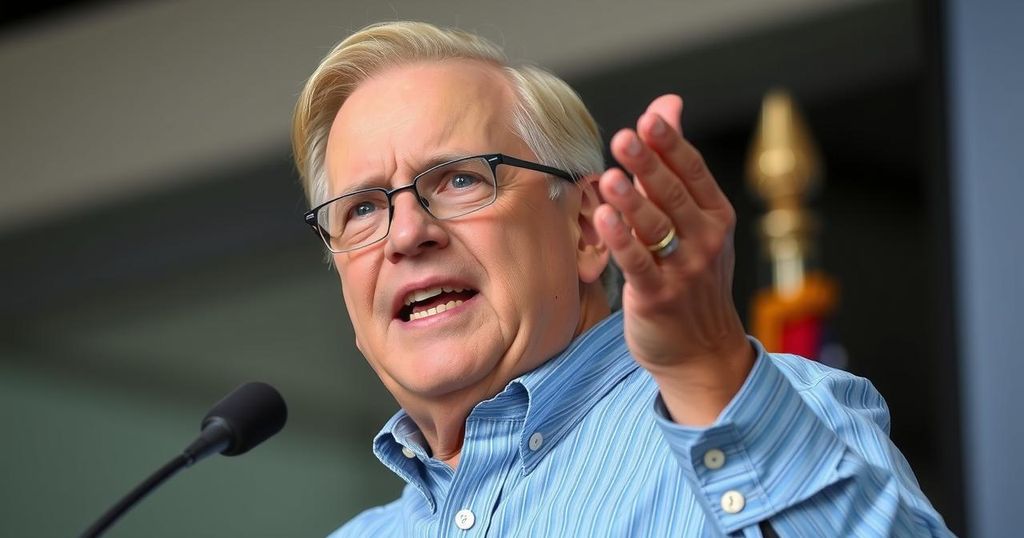Syria’s new leader, Ahmed al-Sharaa, indicated elections might take four years, underscoring the need for constitutional revisions and the importance of ties with Iran and Russia. He is hopeful that the U.S. will lift sanctions after the ousting of Bashar al-Assad, claiming they should not apply to the new leadership.
In an interview with Al Arabiya, Ahmed al-Sharaa, the newly appointed leader of Syria, stated that the electoral process in the country could span up to four years. He emphasized the necessity of restructuring the constitution, which he estimated would take two to three years to complete. Al-Sharaa highlighted the significance of maintaining relationships with Iran and Russia, both vital allies of the Assad regime, and expressed optimism regarding the potential lifting of U.S. sanctions under President-elect Donald Trump. He argued that the sanctions, rooted in the actions of former leader Bashar al-Assad, should be withdrawn automatically in light of the regime change. Al-Sharaa leads the Islamist faction, Hayat Tahrir al-Sham (HTS), which is designated as a terrorist organization by various nations, including the United States.
The political landscape in Syria has dramatically shifted following the ousting of Bashar al-Assad by the Islamist group Hayat Tahrir al-Sham (HTS) and allied rebel forces. As Syria faces ongoing humanitarian crises amplified by international sanctions, the new leadership seeks to re-establish governance and democratic processes. The discussion of elections and the constitutional reform highlights the country’s focus on restoration amid the backdrop of its alliances with Iran and Russia.
In summary, Ahmed al-Sharaa’s statements regarding the timeline for elections in Syria reflect a broader strategy of realignment and recovery after the upheaval of the Assad regime. His plea for the lifting of sanctions reveals an urgent need for economic revitalization and the restoration of international relationships, particularly with the incoming U.S. administration, which may play a crucial role in shaping Syria’s future.
Original Source: www.scmp.com






